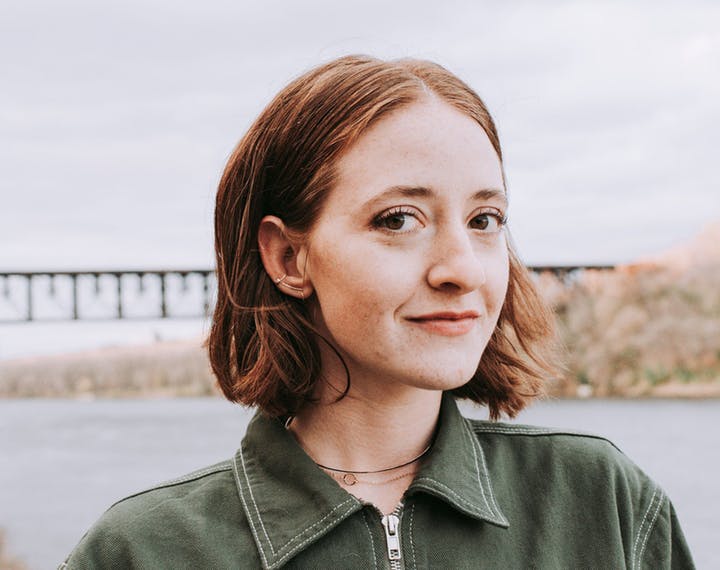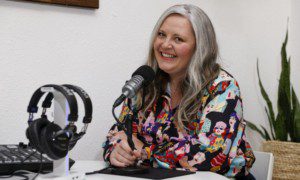By Gail Rosenblum
Star Tribune (Minneapolis)
WWR Article Summary (tl;dr) Aletta Brady is using the power of storytelling to raise awareness about Climate Change.
Star Tribune (Minneapolis)
Aletta Brady won a 2019 J.M.K. Innovation Prize, an award aiming to foster “wildly creative solutions to social and environmental challenges.”
Armed with a laptop and phone, the 28-year-old Minnesotan created a web-based platform, called Our Climate Voices, to humanize the climate crisis by gathering and sharing personal stories, through written narratives, photos, podcasts and videos, to demonstrate how climate change is affecting individuals and communities.
The prize, awarded by the J.M. Kaplan Fund in New York, gives each of the 10 winners up to $175,000 over three years and creates the opportunity for recipients to work with other innovators to grow their projects. We caught up with Brady in London by phone to learn more about the project.
Q: Tell us a bit about yourself.
A: I grew up in south Minneapolis and went to South High School, then Wesleyan University. I’m currently in London to do a master’s program studying climate migration at the London School of Economics.
Q: What’s your key takeaway from the program so far?
A: The fact that there’s projected to be 200 million to 1 billion people forced to migrate due to climate change by 2050. We need to evaluate what compassionate pathways of mobility look like. When people have to move, how do we ensure they’re not stuck in limbo? People are not always able to move freely.
Q: When did you first realize the significance of climate change?
A: When I was in elementary school, I became aware of the fact that in the city we were experiencing higher air pollution than people in the suburbs. I remember being really upset about that because it didn’t feel fair. I actually got involved with the Sierra Club’s youth chapter. We ended up getting a law passed prohibiting buses from idling in front of schools. That was sort of like “a moment” for me.
Q: What led to Our Climate Voices?
A: In 2016, I had a full-time job as a research associate for an environmental think tank in Washington, D.C. That was sort of when the idea was forming. At the time, people were talking about climate change as if it was something really far away. We were feeling this urgency. People really don’t mobilize around something unless they understand how an issue touches peoples’ lives. I officially launched it in 2017. We’ve now grown into a team of 14 young people across the world.
Q: Why do you think sharing these stories is so important?
A: Climate change is really something that’s impacting people’s lives, particularly communities that are already vulnerable: young people, people of color, women, LGBTQ, people with disabilities. The other reason it’s so important is it connects us, it gives us hope in a way that traditional reporting on the environment crisis doesn’t. In sharing first-person stories, we’re able to connect with the issue in the context of one person’s life. Everybody has a climate story. We think it’s really important to not just share the most extreme impacts, but also things that maybe are less life-changing. We shared a story about a mom and how her kids can’t swim in lakes anymore because of algae blooms.
Q: How do you find people?
A: Sometimes we reach out to people we’re really inspired by, or people will reach out to us. Usually people reach out to us on social media, on Instagram or Facebook.
Q: Share one of the most difficult moments in this project.
A: We are working and collaborating with people who have faced really serious and challenging things, such as a young man in Detroit who lost a friend in a heat wave. It’s super important when we do interviews or chat to show up and be fully present and really honor that.
Q: What is your long-term goal?
A: We are really inspired by movements that have shifted the conversation and urgency of issues in the past. I think a lot about the marriage movement, I think about Black Lives Matter and I think about #MeToo. I think our goal would be to create a shift in the way we talk about and act on climate change.
Q: Initial plans for the money?
A: It feels like a big responsibility. We’re sort of still in conversation about that. We have been doing this work entirely on a volunteer basis. For the first time, this would allow us to hire staff. We have been connecting mostly on Skype and we haven’t been able to meet people in person. It will enable us to travel some and connect with people. We’re launching our listening series, which is a podcast. It’s where we discuss the intersection of different social justice issues and climate justice. It’s recorded conversations. We have a really low budget. We launched our first episode in June in line with Pride Month. It was on Queer and Trans Liberation, and climate justice.
Q: How have these stories changed your view of the climate crisis?
A: When I initially went into this work, I thought what we needed was to create a sense of urgency and ramp up. I still believe that. But I think the conversations I have had have really taught me the importance of slowing down, and the importance of connecting with people and places and really understanding the intimate ways the climate crisis is impacting us, and the importance of community care and resilience in the face of climate crisis. We have to slow down and be present with each other and listen to and learn from one another. I think that’s maybe the biggest lesson that I’ve learned.
___
Distributed by Tribune Content Agency, LLC.
















































































































































































































































































































































































